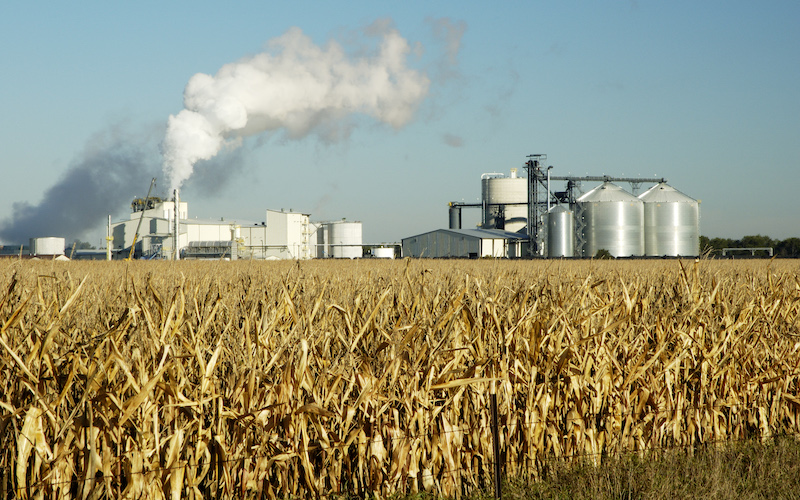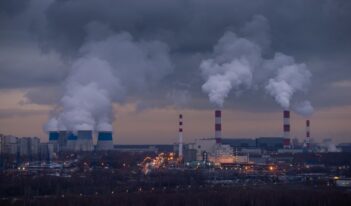
Scholar argues that greater regulation of biofuels is needed to promote environmental justice.
The annual global production of biofuels—liquid or gaseous energy sources derived from organic material—has skyrocketed in recent years, experiencing a 475% increase between 2001 and 2015. This rapid growth in fossil fuel alternatives would be a welcome development if biofuels help combat climate change. But do they?
In a recent paper, Carmen Gonzalez and Elizabeth Ann Kronk Warner argue that they do not. In fact, the dramatic rise in biofuel production has exacerbated environmental injustices in developing countries, claims Gonzalez, a professor at Seattle University School of Law. Regulations are needed to restrict biofuel production, as well as to limit speculative trading in commodities markets, she says.
According to Gonzalez, biofuels first entered the American spotlight during the oil embargo of the early 1970s. In response to the fuel shortage, Congress subsidized the production of corn-based ethanol and created accompanying tax incentives for large corporations engaged in the production of biofuels. Thus corporate interests, Gonzalez says, drove the steady increase in biofuel production that followed.
Today, biofuels are treated as an important component of U.S. energy policy. Gonzalez points to the Energy Independence and Security Act of 2007—which mandates the incorporation of 36 billion gallons of biofuels into U.S. transportation fuels by 2022—as an example of a troubling congressional endorsement of biofuels.
Gonzalez explains that, despite this push for biofuels, there are hardly any regulatory requirements imposed on the production of biofuels to address or evaluate their environmental impacts. The only relevant regulation at the time of publishing required that any biofuels produced after 2007 reduce life-cycle greenhouse gas emissions by 20 percent relative to fossil fuels. In practice, she argues that this requirement is essentially meaningless, however. Congress exempted all existing producers of biofuel at the time, and the U.S. Environmental Protection Agency later issued a rule exempting all new corn-based ethanol producers, Gonzalez says.
The lack of environmental regulations for biofuels is especially troubling because most biofuels—if one also accounts for the practices used to produce them—actually release more greenhouse gases than traditional fossil fuels, Gonzalez argues. Producers of biofuels often clear large forests to plant their crops, use petroleum-based pesticides, and use petroleum-fueled machinery to harvest and then convert their crops into biofuel. In fact, Gonzalez cites one study which found that when production methods are accounted for, the emissions of corn-based ethanol are almost double the emissions of gasoline over a thirty-year period.
Yet Gonzalez’s concerns about the use of biofuels are not limited to their implications for climate change. She also worries about potential environmental injustices, since, for example, the costs of biofuels are disproportionately distributed to the world’s most vulnerable populations. In addition, she claims that the production of biofuels has reduced overall food production in developing nations and has resulted in higher food prices worldwide.
Gonzalez argues that the lucrative biofuels market “favors export-oriented corporate agribusiness at the expense of small farmers and local food production.” Large transnational corporations seeking to expand their biofuel production look to acquire inexpensive land in African and South American nations. The problem is that these lands are typically used by small subsistence farmers for growing food crops. In addition, farmers and agricultural companies in these countries are increasingly diverting large portions of their food crops to the more lucrative production of biofuels, Gonzalez asserts.
On top of exacerbating food shortages, the growth of biofuels has also contributed to higher food prices. Gonzalez explains that after the collapse of the housing market in 2008, many investors shifted their attention to speculative investments in agricultural commodity markets, which resulted in volatile food prices.
“The failure of governments to adequately regulate investments in agricultural commodities increased market volatility, posing significant risks to low-income food purchasers—including including small farmers—and to net-food-importing nations,” Gonzalez states.
Regulating the biofuel industry is the first step to alleviate these environmental injustices, according to Gonzalez. She argues that the United States should regulate the expansion of biofuels that threaten food security through taxes or even complete bans. Gonzalez suggests that subsidies, tax breaks, and regulatory quotas for the production of biofuels should be phased out until third-generation biofuels—fuel derived from algae—become a viable alternative.
But regulating the production of biofuels is not enough, according to Gonzalez. The United States should also regulate financial speculation in agricultural commodity markets to reduce the volatility of food prices. Although investors would most likely oppose such regulations, the United States would not be the first country to impose them. In fact, Gonzalez points to the European Union’s Markets in Financial Instruments Directive (MiFID) as a model for the United States to follow. Implemented in 2007, MiFID controls the degree of speculative trading in agricultural commodity markets by imposing position limits.



